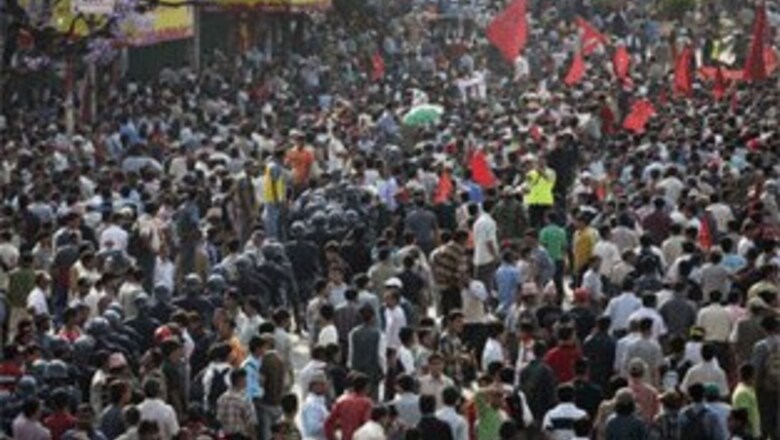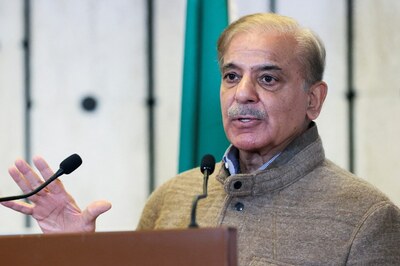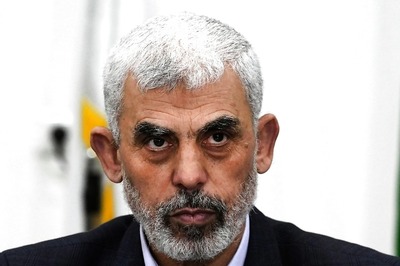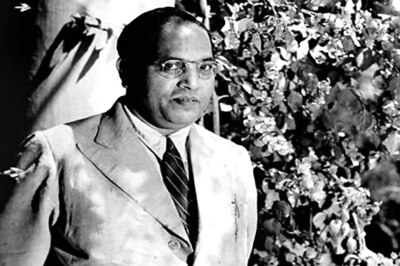
views
Kathmandu: Nepal's first Maoist Prime Minister Pushpa Kamal Dahal also known as Prachanda on Monday announced his resignation in a televised address to the nation.
The resignation sent shock waves through the nation and raised grave questions about peace and stability in the turbulent Himalayan republic. The PM was miffed over the Nepal President's reinstatement of the army chief Rookmangud Katawal, who Prachanda had sacked over recruitment issues.
The Prachanda government had come under the cloud of a no-trust vote in parliament and faced likely defeat. By resigning, Prachanda has saved face and also tried to get a moral high ground.
A key ally of Nepal's ruling Maoists had withdrawn support on Sunday, leaving the coalition unstable after differences over the sacking of the country's army chief earlier in the day.
The Maoists had fired Nepal's army chief Rookmangud Katawal, accusing him of disobeying instructions not to hire new recruits and refusing to accept the supremacy of the civilian government over the army.
The move had angered government allies, and the second biggest grouping in the coalition, the Communist UML party, which then warned that it was walking out. A smaller partner, the Sadbhavana Party, said it was pulling out too.
"The party has decided to leave the coalition and withdraw support to the Maoists," Ishwar Pokharel, general secretary of the UML party, had told reporters.
"The Maoists have failed to lead the government with our confidence."
The UML's withdrawal had left the Maoists with a slender majority in a 601-member parliament.
The Maoists have 238 seats and still had support of some small parties. The UML party has 108 members and the Sadbhavana Party has three.
The developments have plunged the impoverished Himalayan nation into crisis.
Had any more allies of the Maoists quit, it would have left the Maoist-led government in a minority and forced a parliamentary vote.
Katawal too seemed to be bracing for a fight. Before the President Ram Baran Yadav backed the army chied, he had refused to accept his dismissal and was meeting other generals in his office, an army official had said.
Nepal does not have a history of military coups, but the move could wreck a 2006 peace pact which ended a decade-long civil war that pitted the army against the Maoists.
Party officials and political analysts had said more allies could desert the Maoists.
Before Prachanda's resignation, hundreds of activists of the opposition Nepali Congress party burned tyres on the streets of the capital Kathmandu in protest against the decision.
The Nepali Congress said the Maoists were trying to impose "totalitarian" rule by bringing the army under their control. The government allies say they are angry because the decision to sack Katawal was made without consulting them.
Uneasy ties with the army:
The Maoists say the move against Katawal was to establish "civilian supremacy" over the army, which was once seen as loyal to the now deposed monarchy.
The former rebels emerged as the single largest party in a constituent assembly election last year that is tasked with running Nepal until a new constitution is written by May 2010.
Abolition of Nepal's 239-year-old monarchy and a new constitution were the key demands in the Maoists' peace negotiations.
"At this rate it is unlikely that the new constitution will be written on time," Kunda Dixit, editor of the Nepali Times weekly, told Reuters.
The Maoists came to power in the face of great public expectations, but soon found themselves struggling with daily power outages, high inflation and massive fuel shortages in one of the world's poorest countries.
Ties between the Maoists and the army have been fraught since the former rebels took over.
Katawal was due to retire in four months.
The Maoists accuse him of hiring 2,800 new recruits and reinstating eight generals without consulting the government.
The Maoists and the army have also faced off on the question of absorbing more than 19,000 former rebel fighters into the armed forces.
Katawal had resisted, saying the army could not take in "indoctrinated" cadres.
The rehabilitation of the former fighters is seen as key to lasting peace in the country.
The government said the cabinet had appointed General Kul Bahadur Khadka, next in line after Katawal, as acting chief of the 93,000-strong army.
Though the political uncertainty could mean prolonged streets protests, analysts said there was little chance of the Maoists returning to the jungles.
Their fighters are now housed in UN-monitored camps under the 2006 peace pact.


















Comments
0 comment